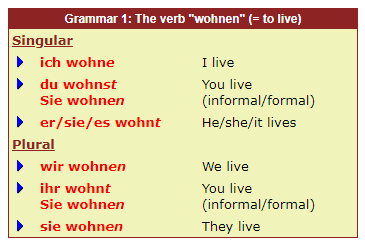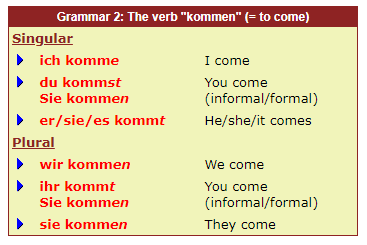Present tense of German verbs (2)
You will have noted that the verbs "wohnen" (= "to live") and "kommen" (= "to come") used above have the same endings as "heißen" in the previous chapter. To help you get used to a difficult part of German grammar, we will reproduce the present tense of these verbs in full below:

1. Note that the present tense of a German verb has two possible English translations, e.g. "er wohnt" could either mean "he lives"or "he is living" depending on context. Unlike English, German has no separate form to indicate continuing action.
2. You may also have noted that the endings for the "wir", "sie" (plural) and "Sie" forms are the same for all verbs. Helpfully, in regular verbs their verb form will be exactly the same as the infinitive.

 英语
英语 日语
日语 韩语
韩语 法语
法语 西班牙语
西班牙语 意大利语
意大利语 阿拉伯语
阿拉伯语 葡萄牙语
葡萄牙语 越南语
越南语 俄语
俄语 芬兰语
芬兰语 泰语
泰语 丹麦语
丹麦语 对外汉语
对外汉语

